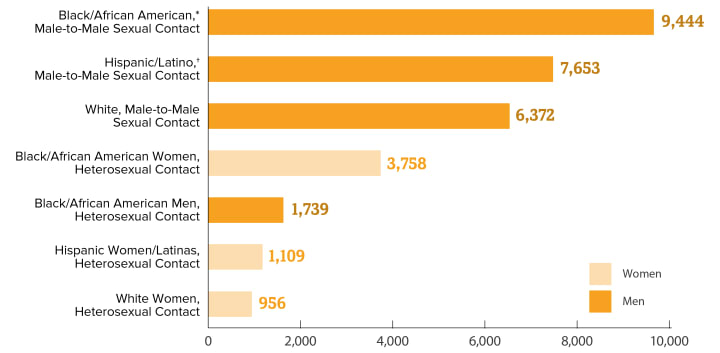Addressing The Stigma Surrounding HIV/AIDS
HIV/AIDS ≠ Death Sentence

Grammy-nominated rapper DaBaby was recently filmed at his concert making several erroneous statements regarding gay individuals with HIV. His exact words were,
"If you didn't show up today with HIV, AIDS or any of them deadly sexually transmitted diseases, that'll make you die in two to three weeks, then put your cellphone lighter up ... Fellas, if you ain't s***ing d**k in the parking lot, put your cellphone lighter up.
Most people were quick to spot the homophobic nature of these comments and took to Twitter to express their disapproval. Almost everybody, including celebrities like Madonna, jumped on this bandwagon and DaBaby became yet another victim of the prevailing cancel culture overnight. But more importantly, I believe this incident brought the issue of HIV/AIDS misinformation to light and exposed the need for educating the masses.
An example of this would be explaining the difference between HIV and AIDS to those who use these words interchangeably or consider them two separate diseases. HIV (human immunodeficiency virus) is the pathogen that is responsible for attacking our immune system meanwhile AIDS is the infection that results after HIV has progressed to Stage III. The virus, itself, lies dormant for a long period (up to 10 years) before it reactivates and starts to target the immune cells. Therefore, you can have HIV in your body but that doesn't automatically translate to having AIDS.
However, the real problem stems from this misinformed notion that HIV only affects gay men. Perhaps, its portrayal in history is to be blamed since AIDS was often represented as a "gay disease" back in the '80s. As a matter of fact, it took Lady Diana shaking hands with AIDS patients across the world to refute this theory that HIV could spread through contact.

Indeed, the first batch of HIV cases were identified in gay men but a virus doesn't discriminate between men with different sexualities. It's no wonder the number of heterosexual people with HIV has increased steadily ever since. Yes, HIV does affect gay men disproportionately in developed nations like the US but that's more to do with the nature of intercourse between men rather than the virus targeting these people.

Moreover, stigmatizing HIV makes it hard for gay men to access healthcare or feel comfortable enough to share their concerns with professionals. In a survey carried out by the Kaiser Family Foundation on 431 gay and bisexual men, 61% of the participants said they rarely bring up HIV when visiting their doctor. Additionally, around 30% of the participants reported feeling uneasy discussing sexual behaviours with doctors. Sadly, it seems false ideas surrounding HIV have ingrained themselves into our lives thereby fostering discriminatory beliefs regarding the gay community. These beliefs, in turn, hinder widespread HIV testing (especially in heterosexual individuals) and perpetuate self-hatred in those who test positive.
-------------------------------------------------------------
Yet another inaccurate viewpoint expressed in DaBaby's assertion was the actual progression of AIDS. While it certainly was a debilitating disease (and remains to a large extent), advances in medicine have ensured a better prognosis. Especially with the new anti-retroviral drugs and continuing research on pharmacological interventions, quality of life has significantly improved. Quite simply, nobody will "die in two to three weeks" and believing such assumptions doesn't help those patients trying to maintain a positive outlook towards life. Equating HIV with some sort of a death sentence puts them at an increased risk of having suicidal thoughts. In fact, research carried out on 185,000 people currently living with HIV/AIDS worldwide determined they are 100 times more likely to die by suicide compared to the general population.
Not only this but a lack of understanding about topics relevant to HIV also needs to be tackled. As reported by the KFF survey, a large proportion (54%) of gay & bisexual men don't know about starting antiretroviral drugs immediately after getting their diagnosis. Furthermore, a whopping 74% don't possess any knowledge about prophylactic use of antiretrovirals to lower their risk of contracting HIV.

Undoubtedly, it's hard for HIV-positive people to imagine navigating the treacherous path of openly accepting their diagnosis. They actively try to hide this sensitive piece of information and if anything, DaBaby's comments have proved that we have a long way to go before the discrimination well runs dry.
In my humble opinion, open dialogue is probably the only way we can confront this issue head-on. This extends over to DaBaby as well and I was pleased to see 11 HIV/AIDS organizations offered to educate him about the condition. Truth be told, we all need sensitivity training to be able to support those around us struggling to comprehend HIV as a possibility.
----------------
Enjoyed reading this article? Why not hop on over to my author profile and check out some other compositions I have also dabbled with.
While you're at it, do subscribe to receive updates on all new content I upload.
About the Creator
Muhammad Hamza Shah
Medical Student | Trying to discover my forte in writing while snoozing over lofty medical textbooks.







Comments (1)
Good use of data to raise greater awareness of HIV. It is not exclusive to Gay men. Great work.